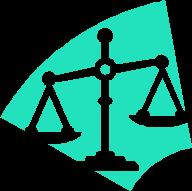
Associate Director for Managerial and Professional Recruitment, Marcie Calabrese, offers tips on how to cultivate your job search at Yale:
May 2018 - Your resume is a picture of YOU, not the job you do. It is a brief summary of what your role is in the organization in which you work. If you need three pages to convey relevant information about your skills, qualifications, work history and education, then use them. It is not necessarily the length of the resume, but the content that is critical in getting the attention of the hiring manager. Three pages of relevant and well written information is far more valuable than one page of overstated, unclear and poorly written work history. Know the difference and have your resume work for you.
February 2018 - The cover letter is essential in communicating your interest in any specific position for which you apply. It does not repeat the content of your resume, but rather, it enhances the skills and qualifications as well as your interest that that specific job. It’s your chance to show you’ve done your homework to understand the position as well as the organization that it supports. The letter is brief, grammatically correct and to the point, and above all, it is a professional representation of you.
October 2017 - When searching for positions at Yale, it is important to know that there is no technical system that scans your resume for specific words and qualifies you for positions. This is a common misnomer about Yale’s recruitment process. Human eyes review every application, and they search for the qualifications and skills that are listed as required by our job descriptions and hiring manager community; there can be no exceptions when it comes to meeting a stated requirement. If you have questions, call the recruiter to gain better insight into the particular position, and also to know more about what positions align best to your skills. As a Yale employee, you have direct contact with any recruiter assigned to the positions to which you are applying.
June 2017 - Your resume is a picture of you, and not necessarily the job you do. It is a brief summary of what your role is in the organization in which you work. If you need three pages to convey relevant information about your skills, qualifications, work history and education, then use them wisely. It is not necessarily the length of the resume, but the content that is critical in getting the attention of the hiring manager. Three pages of relevant and well written information is far more valuable than one page of overstated or unclear written work history. Knowing the difference can better position you to have your resume work for you!
January 2017 - The cover letter is essential in communicating your interest in any specific position for which you apply. It does not repeat the content of your resume, but rather, it enhances the skills and qualifications as well as your interest in that specific job. It’s your chance to show you’ve done your homework to understand the position as well as the organization that it supports. The letter is brief, grammatically correct and to the point, and above all, it is a professional representation of you.
April 2016 - If you need three pages to convey RELEVANT information about your skills, qualifications, work history and education, then use them. It is not necessarily the length of the resume, but the content that is critical in getting the attention of the hiring manager. Three pages of relevant and well written information is far more valuable than one page of embellished, unclear and poorly written work history. Know the difference.
February 2016 - Your resume is a picture of YOU, not the job you do. This is your marketing tool and first impression to the employer. It is not a job description, or a list of tasks assigned to the job. It is a brief summary of what your role is in the organization in which you work. Address primary FUNCTIONS or ROLES, and how you may be responsible for them. Be prepared to speak to specific and relevant accomplishments that are important to visualize you in those roles. Accuracy and clarity are key to an effective resume. Incorrect grammar and spelling says that you either cannot proofread your work, or that you don’t care to proofread your work. Which is worse?
December 2015 - Every job search should begin with serious review of your own skills and qualifications as well as interests. Taking stock of your skills requires serious introspection, and the ability to appreciate constructive criticism from someone you trust and who knows you well. Think about the things you do that make you feel the best, most confident and competent. It may not even be a work related area, but it is important in understanding what skills and competencies are used and can be transferred to other areas. The truth is, if you love what you do, you’ll never work a day in your life.